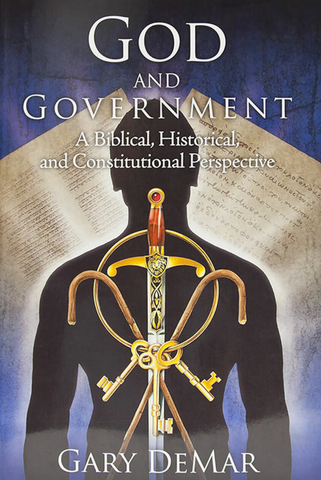The Ten Commandments are once again in the spotlight, stirring up debate among cultural commentators and political figures. You may remember the controversy when former Chief Justice of the Alabama Supreme Court Roy Moore installed a 2.5-ton granite monument of the Ten Commandments in the rotunda of the Alabama Judicial Building in Montgomery, Alabama.
Moore said the following after its removal:
“Our decline as a nation will not be at the hand of a foreign power or external enemy but will occur only when we lose that virtue and morality, under God, upon which we began,” Moore said in the Facebook post. “The Laws of Nature and of Nature’s God are not only the source of our morals but also our unalienable rights. We have the right to religious liberty because God said, ‘Thou shalt have no other gods before me,’ and we have the right to life because God said, ‘Thou shalt not kill.’”
Why was Alabama singled out when Pennsylvania has had a display of the Ten Commandments in its State Supreme Court building since 1927? There are sixteen murals conceived and painted by Violet Oakley (1874-1961). They are massive, most measuring 10’ by 8’, thus dwarfing Judge Roy Moore’s granite monument. The mural series is titled “Divine Law,” as in God and the Law. Plate V is “The Decalogue … the Hebrew Idea of Revealed Law.” It shows the Ten Commandments being chiseled in stone. Below the striking image, the commandments are written out for everyone to see.

This time, it’s the hosts of “The View” criticizing a new Louisiana law that mandates the display of the Ten Commandments in classrooms across the state. Predictably, the conversation quickly turned into an attack on Christians, particularly those who support former President Donald Trump, pointing out his alleged violation of the seventh commandment—adultery.
Joy Behar of The View suggested posting the commandments at Mar-a-Lago alongside a picture of Stormy Daniels, sarcastically implying that Trump has broken eleven commandments, exceeding the traditional ten. While the accusations of adultery are valid, it’s important to note that such critiques rely on the very moral standards set by the Ten Commandments. Without these divine laws, there would be no basis for such judgments.
David French, a self-described Evangelical Christian, has also voiced opposition to displaying the Ten Commandments in public schools. His arguments, discussed in my article “French Kissing Secularism,” highlight a troubling trend among some Christians who seem more aligned with secular ideologies than biblical principles.
The View’s Misguided Critique
Behar’s co-hosts echoed her sentiments, with Whoopi Goldberg lamenting that in her youth, religious beliefs were private and not publicly enforced. However, this overlooks a crucial point: the near-universal acceptance of the Ten Commandments as a moral foundation. Films and cultural norms once reflected these values, reinforcing a societal consensus on right and wrong.
Goldberg said, “This bothers me to no end, because [when] I grew up, … you were allowed to believe how you believed. It wasn’t really stuff you discussed with other people.” Did this mean that stealing people from their countries and homes and enslaving them was an OK position to have? On what basis is slavery immoral and should be outlawed? If the Eighth Commandment—You shall not steal—should not be posted in schools, then what about this law from the biblical book of Exodus:
Now one who kidnaps [Lit. steals] someone, whether he sells him or he is found in his possession, shall certainly be put to death (Ex. 21:16).
The Eighth Commandment is based on the First Commandment. If there is no God, everything is up for grabs. “The left presumes that humans are nothing more than blank, abstract consciousnesses piloting meat sacks.” (The Blaze)

Why It Might Be OK to Eat Your Neighbor
Love your neighbor or eat him? The most damning assessment of a matter-only cosmos devoid of a Creator is that we got to this place in our evolutionary history by acts of violence whereby the strong conquered the weak with no one to support or condemn them. Why It Might Be OK to Eat Your Neighbor repeatedly raises the issue of accounting for the conscience, good and evil, and loving our neighbor. It’s shocking to read what atheists say about a cosmos devoid of meaning and morality.
Buy NowIf religious beliefs should remain private, then it would mean that no one could condemn slavery. Slavery cannot be condemned given Goldberg’s operating assumptions of a supposed privatized neutral moral worldview.
By excluding the Ten Commandments, government schools do not become devoid of moral instruction but instead adopt a different set of values imposed by the State and influenced by various interest groups, including those advocating for secularism, LGBTQ+ rights, and other so-called “progressive” causes.
The Constitutional Misinterpretation
Sarah Haines of The View brought up the First Amendment, arguing that posting the Ten Commandments violates the Establishment Clause of the Constitution. Yet, the First Amendment clearly states, “Congress shall make no law respecting an establishment of religion or prohibiting the free exercise thereof.” This means that while the government cannot establish a national religion, it also cannot prohibit the free exercise of religion, which includes the expression of religious beliefs in public spaces, including schools. The intrusion of the federal government into education has led to the erosion of local values and the imposition of a monolithic, secular ideology.
The government’s involvement in education has grown disproportionately, leading to the suppression of religious expression and the promotion of secular humanism. Public schools, funded by taxpayer dollars, often teach values contrary to those held by many of the families they serve. This discrepancy is starkly visible in the teaching of issues like abortion, transgenderism, and homosexuality, which many religious families find objectionable.

God and Government
Relying on clear historical and biblical research, author Gary DeMar demonstrates how America has been great and how she can be great again. But the work is far from finished, and Americans need to hear—now more than ever—the biblical and historical truths explained in God and Government. This edition has been thoroughly renovated, revised, and updated into a beautiful one-volume hardback.
Buy NowRemoving the Ten Commandments from schools does not eliminate moral instruction but replaces one moral framework with another. As Christians, we must advocate for a return to local control and parental choice in education. This would allow for a diversity of educational environments where parents can choose schools that align with their values.
A Call to Action
The debate over the Ten Commandments in public schools highlights a broader cultural struggle over moral authority. Christians need to recognize the importance of these divine laws as the foundation for a just and moral society. By withdrawing from the government school system and supporting alternatives like homeschooling and private religious schools, Christians can take a stand for their beliefs. This shift would not only preserve our values but also challenge the dominance of secular ideologies in public education.
The Ten Commandments remain a vital part of our moral heritage, and their presence in our schools is a testament to the enduring truth of God’s law. Let us not shy away from defending their place in our society and ensuring that future generations understand the moral foundations that have shaped our nation.
Most people who only have seen the 1956 film Ten Commandments on television have never seen Cecil B. DeMille’s opening monologue. DeMille had something more in mind than just making a film about a religious figure from the Bible. He considered his production to be so important that he came out on stage to deliver a short but powerful statement on the nature of freedom under the law of God:
The theme of this picture is whether men ought to be ruled by God’s laws or whether they are to be ruled by the whims of a dictator like Rameses. Are men the property of the State or are they free souls under God? This same battle continues throughout the world today.
The elaborate film Souvenir Book that was made available in theaters includes a preface with the title “The Law by Which Men Live”:
THE TEN COMMANDMENTS are not laws. They are THE LAW. Man has made 32,000,000 laws since they were handed down to Moses on Mount Sinai more than three thousand years ago, but he has never improved on God’s law.
President Truman voiced the common and prevailing sentiment of his day:
The fundamental basis of this nation’s laws was given to Moses on the Mount. The fundamental basis of our Bill of Rights comes from the teachings which we get from Exodus and St. Matthew, from Isaiah and St. Paul. I don’t think we comprehend that enough these days. If we don’t have the proper fundamental moral background, we will finally wind up with a totalitarian government which does not believe in rights for anybody.[1]
We cannot live within the fluid boundaries of legal relativism. There must be a definitive and final legal standard of appeal to justify moral decisions at the personal and governmental levels. If not, then one judge’s opinion is as good (or as bad) as another. “Everyone did what was right in their own eyes” (Judges 17:6).
[1] Harry S. Truman, Harry S. Truman: Public Papers of the Presidents of the United States Containing the Public Messages, Speeches, and Statements of the President—January 1 to December 31, 1950 (Washington, D.C.: United States Government Printing Office, 1965), 197.

